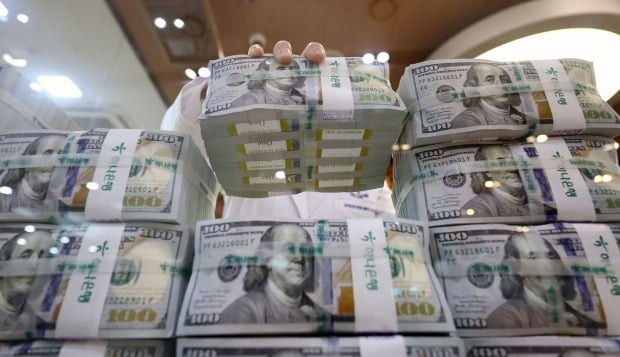Foreign exchange
S.Korea doubles undocumented overseas remittance limit to $100,000
The government plans to make the foreign exchange system more convenient for the public and business
By Feb 10, 2023 (Gmt+09:00)
1
Min read
Most Read
LG Chem to sell water filter business to Glenwood PE for $692 million


Kyobo Life poised to buy Japan’s SBI Group-owned savings bank


KT&G eyes overseas M&A after rejecting activist fund's offer


StockX in merger talks with Naver’s online reseller Kream


Mirae Asset to be named Korea Post’s core real estate fund operator



South Korea as early as June will double its annual limit on overseas remittance without evidential documents from $50,000 to $100,000.
The Ministry of Economy and Finance on Friday announced this move under a plan on reform of the foreign exchange system at a meeting of a task force on innovation of economic regulation chaired by Minister of Economy and Finance Choo Kyung-ho.
The plan came in response to criticism of major inconvenience for the public and companies by the foreign exchange system under the philosophy of "restraining foreign currency outflow," despite the country's larger economic scale and higher demand for foreign currency transactions.
For fundamental reform of the foreign exchange system such as the abolition of advance reporting of capital transactions, the government decided to act in phases given the time needed to revise laws.
The initial step is to amend enforcement ordinances and regulations. If a person designates a bank for foreign exchange transactions, he or she is limited to sending $50,000 per year if no evidential documents are provided. The first phase of the reform would thus be to double the limit to $100,000.
The government seeks to raise convenience in foreign exchange transactions by increasing the limit, which was set in 1999 after passage of the Foreign Exchange Transactions Act based on the size of the national economy at the time.
The reform plan will also alleviate difficulties in foreign currency procurement for companies. When a company borrows foreign currency, the annual amount that must be reported to the ministry and the Bank of Korea will be raised from more than $30 million to over $50 million.
Even large securities companies will be allowed to conduct general foreign currency exchange for ordinary customers. Nine comprehensive financial investment businesses are thus expected to get approval to perform such exchange for individual and corporate clients.
Write to Jung-hwan Hwang at jung@hankyung.com
More to Read
-
 Foreign exchangeS.Korea to allow offshore investors to directly trade won
Foreign exchangeS.Korea to allow offshore investors to directly trade wonFeb 07, 2023 (Gmt+09:00)
2 Min read -
 Foreign exchangeS.Korea to extend trading hours of local forex market
Foreign exchangeS.Korea to extend trading hours of local forex marketJan 13, 2023 (Gmt+09:00)
2 Min read -
 Korean stock marketKorea Exchange seeks to extend derivatives trading hours
Korean stock marketKorea Exchange seeks to extend derivatives trading hoursJan 31, 2023 (Gmt+09:00)
1 Min read -
 Foreign exchangeKorea eyes removal of pre-reporting for forex transactions
Foreign exchangeKorea eyes removal of pre-reporting for forex transactionsJan 16, 2023 (Gmt+09:00)
1 Min read
Comment 0
LOG IN


